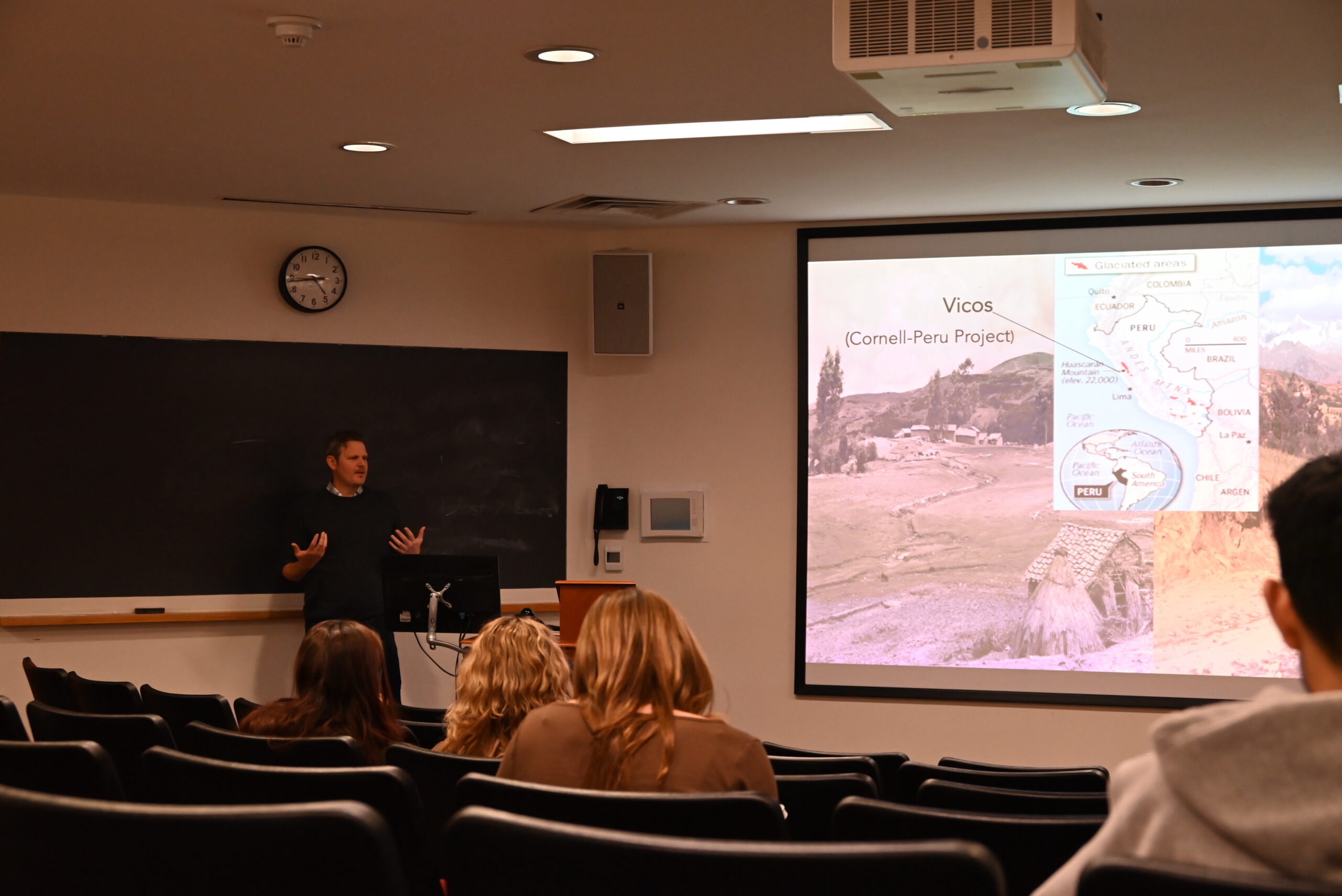Professor lectures on controversial study justifying Cold War-era development
February 24, 2023
 Cloe Tarlton
Cloe TarltonJason Pribilsky, a professor of anthropology at Whitman College, delivered a lecture on Wednesday about the Vicos Project to discuss the morality of humanitarian efforts in developing countries.
The Vicos Project was a controversial anthropological study in the Peruvian Andes under the auspices of Cornell University in the 1950s, during the height of the Cold War. The goal was for the United States and its allies to study what made a people or nation trend towards communism or capitalism and use that knowledge to their advantage in the Cold War.
Allan Holmberg, then a PhD professor at Cornell University, led the Vicos Study and focused on an hacienda where native Peruvians worked.
“[The hacienda] was essentially a plantation where the indigenous peoples that lived on the land would have to work so many days of the week for the hacienda. And they would, on other days, be able to work for themselves given really mediocre pieces of land,” Pribilsky said.
Holmberg and his team were able to acquire ownership rights to the hacienda and implement new changes which they could study.
“It was a unique kind of situation. Anthropologists generally work in villages; they don’t own villages. They don’t become the plantation owner. So, this is a very, very unique relationship with this community,” Pribilsky said. “Even at the time, there was a lot of chatter about whether this was the proper direction for [anthropologists to study]”.
Attendees of the lecture were also conflicted about the moral dilemma posed by the study, considering the aid that was provided to the indigenous communities and the circumstances created to offer it.
“I feel like this was very colonial of Cornell to do, but at the same time, I’m glad that they were able to help the indigenous communities by providing them education and medical resources,” Lulu Pumayalli ’26 said. “I just don’t think that they handled it in the best way that they could have by using indigenous communities as a form of research. I feel like that is just immoral.”
Anthropology was directly influenced by the Cold War and global pressures to provide an answer for the political tension between capitalism and socialism. Ultimately, these types of experiments through the 1950s would shape the academic future of anthropology.
“This was directly a moment where anthropology could have gone in a different direction. It could have gone in a direction of becoming more of the scientific footing than, say, psychology sits on today,” Pribilsky said.
Pribilksy explained that the project became a major point of victory for the United States as its results helped vindicate the American capitalist ideology.
“Vicos was unique in the 1950s in the sense that it got major press. It made it into things like ‘Reader’s Digest,’ ‘The New York Times,’ ‘Life Magazine’ and CBS News did a documentary,” Pribilsky said. “It was really seen as this miracle and a win for the U.S. in the Cold War.”
The findings of this study were used to justify the United States’ stated strategy to modernize the Global South.
“Essentially, this project was, how could you use the modernization of indigenous people in this community as a way to contribute to what would be that competition in the global Cold War?” Pribilsky said.
Pribilsky’s talk took an anthropological approach to studying the history of modernization and aid in the United States, which evoked opinions from the audience about how international aid is dealt with today.
“I think that we can learn about how we need to clarify what our intentions are while trying to help others. I feel like a lot of people study abroad or go and travel to places where they think they need help, but you need to understand what you’re doing could be seen as colonizing an area or as burdening a community that’s already fine,” Pumayalii said. “I feel like you have to assess what their needs are before you just implement changes.”

Comments
Before submitting a comment, please review our comment policy. Some key points from the policy: